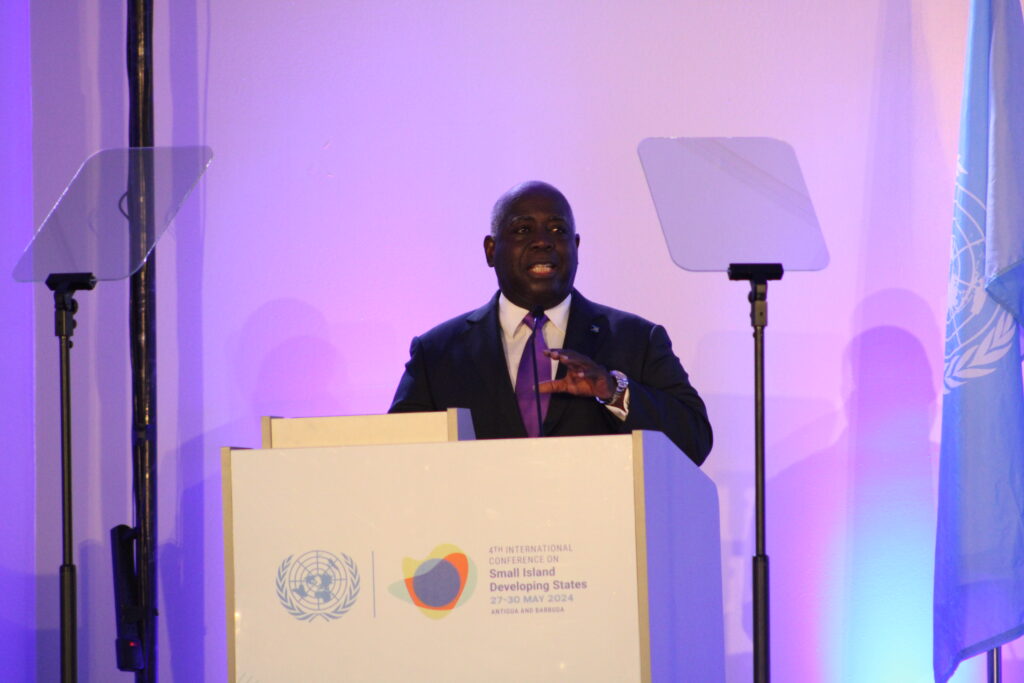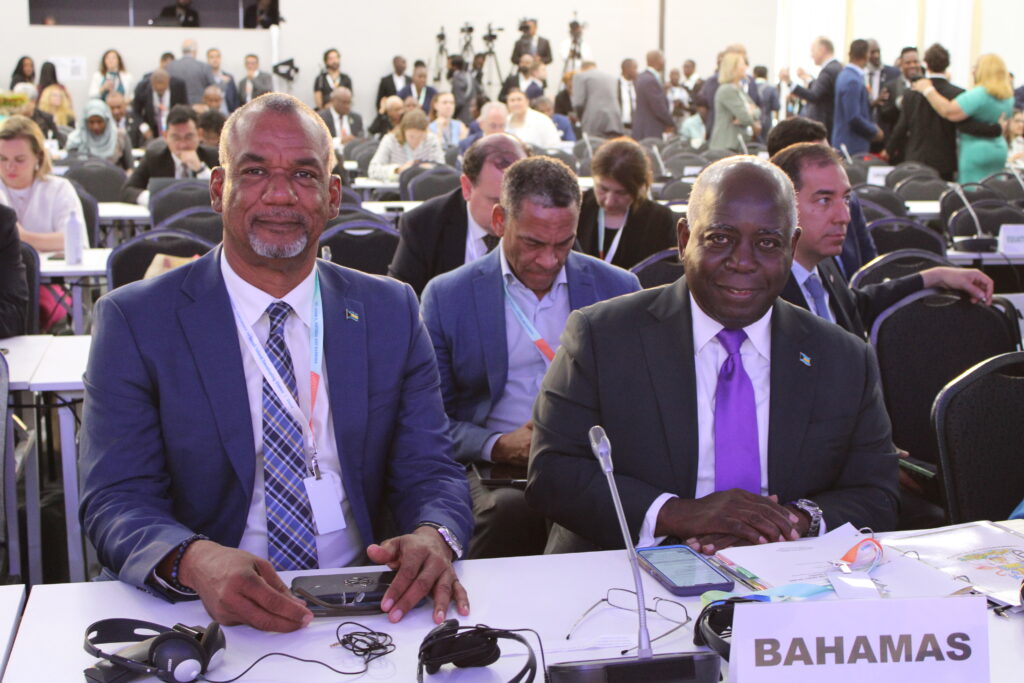In his repeated call for climate action, Prime Minister Philip Davis told distinguished leaders of Small Island Development States that “The Bahamas is burning.”
In recent weeks, The Bahamas has suffered from wildfires in New Providence, Grand Bahama, Abaco and Andros, all ignited by extreme heat and dry conditions stemming from the climate crisis. Extreme heat is one of the harsh effects of climate change and continues to threaten the entire Caribbean region.
“Bushfires stubbornly burn throughout our islands in the heat of the Bahamian dry season. The flames have scorched our coppice and pine forests, unleashing an ashy haze that has spread across our communities,” the prime minister said on Monday during his address at the Fourth International Conference on Small Island Developing States (SIDS4) in Antigua and Barbuda.
“Bahamians living near these fires have been forced to breathe smoke-filled air and endure these hazardous conditions.
“At one point, the bushfires seriously compromised our visibility, forcing the Lynden Pindling International Airport – the airport of our capital – to temporarily halt all incoming and outgoing air traffic for several hours. We fear that this new, fiery reality will become the norm, and April showers will now be replaced by May blazes.
“Bushfires are but the latest disaster in an escalating climate crisis.”

However, Davis said he has “no intention of becoming a climate martyr” as the deadline for climate reform is long gone.
“The time has come for climate revolution. Human action caused this crisis, and only humane actions can fix it,” he said, adding that to empower SIDS, there needs to be sustainable, long-term solutions, not quick fixes or gimmicks.
“Continuing this trend of band-aid solutions without addressing the root of the problem will, quite frankly, kill us.
“If we keep kicking the can down the road, eventually we will run out of road. We, as Small Island Developing States, cannot afford to wait any longer.
“Every year, severe droughts, raging fires, and extreme storms claim more lives.
“We are past the point when platitudes about corporate responsibility are enough to excite us. We need far more than the empty promises and policy paralysis currently offered by the Global North.”
The prime minister also repeated his call for the regulation of the international financial systems that govern the recovery efforts of SIDS countries following natural disasters.

“Recently, we have seen how blacklisting in international finance disproportionately affects our nations, particularly when it comes to insurance claims in the aftermath of disasters. Such punitive measures, often imposed without adequate representation or input from SIDS, only exacerbate our vulnerabilities and hinder our recovery processes,” Davis explained.
“This is not just a matter of financial policy but of justice and equity.”
He called upon the OECD and the European Union to join forces with the United Nations to formulate a global tax treaty that truly represents the interests of all nations, particularly those that are often left out of the conversation.
“This treaty should aim to provide a voice for SIDS, ensuring that our unique challenges and perspectives are acknowledged and addressed in global financial regulations. The OECD cannot give with one hand and take back with the other; true partnership requires consistent and fair support,” the prime minister noted.
“Furthermore, the unfair financial practices imposed on Small Island Developing States by global institutions can be likened to a knee on our necks—restricting our growth and suffocating our recovery efforts. These practices are not merely bureaucratic hurdles; they are existential threats that impede our ability to breathe freely in the wake of disasters. Again, I call on behalf of all SIDS to ‘Take your knees off our necks!’ We seek not just survival but the opportunity to thrive without these oppressive constraints.”
Members of the EU and OECD were in attendance at the SIDS4 conference as the prime minister highlighted the consequences of climate change which include loss and damage.
In an interview with The Bahama Journal, Davis said, “They’re (EU and OECD) in here saying they are here to help us and support us, but at the same time, they’re giving this help and support here, but on the other hand, whenever they blacklist us, and we invoke our insurance claims, we can’t collect, we lose out because most of the reinsuring companies are in the European jurisdiction or the OECD jurisdiction. We are penalized because we are blacklisted and we are unable to access our insurance claims.”
The prime minister emphasized that he wants to warn SIDS countries that the OECD and EU can’t give with one hand and take with the other.
—
This story was originally published by the Bahama Journal and is re-published with permission. It was written by Deandre Williamson, an alum fellow of our Caribbean Climate Justice Journalism Fellowship.